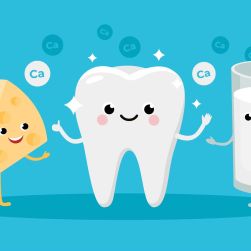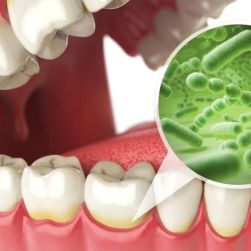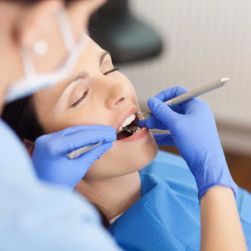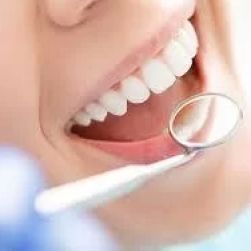What You Need to Know About the Oral Health-Pregnancy Complications Connection
When it comes to pregnancy, many women focus on factors such as diet and exercise while overlooking an important aspect of their health: oral health. The connection between oral health and pregnancy complications has become a significant area of research, revealing that poor oral hygiene and dental issues can lead to serious risks for both mother and child. Understanding this connection is critical for expectant mothers to make informed decisions about their healthcare.
Research indicates that pregnant women with periodontal disease are at a higher risk for complications such as preterm birth, low birth weight, and gestational diabetes. In fact, a study published in the Journal of Periodontology found that women with periodontal disease were more than three times as likely to give birth prematurely compared to those with healthy gums. This alarming statistic underscores the importance of proper dental care during pregnancy.
As pregnancy alters hormonal levels, women's bodies react differently to bacteria in the mouth, making them more susceptible to gum disease and other oral health problems. These changes necessitate an increased focus on dental hygiene before and during pregnancy. The subsequent sections will delve deeper into the various ways in which oral health impacts pregnancy outcomes and what expectant mothers can do to mitigate these risks.
The Impact of Oral Health on Pregnancy Complications
Poor oral health can significantly impact pregnancy complications. Periodontal disease can induce systemic inflammation, impacting blood flow and nutrient delivery to the developing fetus. This systemic effect may contribute to the risk of complications such as preterm labor and low birth weight.
A study by the American Journal of Obstetrics and Gynecology found that women with untreated periodontal disease are 3-7 times more likely to have a preterm delivery compared to those who maintained good oral hygiene. This statistic emphasizes the critical need for dental check-ups and hygiene practices early in pregnancy.
Hormonal Changes and Oral Health
Pregnancy triggers numerous hormonal changes that can affect oral health. Increased levels of progesterone and estrogen can lead to heightened gum sensitivity, inflammation, and bleeding, all of which are signs of gingivitis. According to the American Dental Association, approximately 60-75% of pregnant women experience some form of gingivitis during pregnancy.
This increased susceptibility to gum disease necessitates diligent oral hygiene practices. Regular dental check-ups should be scheduled to monitor any changes in oral health, ensuring that women can address concerns promptly before they evolve into serious issues.
Gestational Diabetes and Oral Health
There is a proven link between gestational diabetes and oral health. Women with periodontal disease are at an increased risk of developing gestational diabetes, potentially due to the inflammation and bacteria produced by gum disease. According to a study in Diabetes Care, women with severe gum disease are nearly four times more likely to develop gestational diabetes.
This connection highlights the importance of managing oral health, as maintaining healthy gums may lower the risk of developing gestational diabetes during pregnancy. Expectant mothers should discuss their oral health status with their healthcare providers to develop a comprehensive care plan that includes regular dental visits.
Preterm Birth and Oral Infections
Preterm birth is a leading concern for expectant mothers, and new evidence suggests that oral infections, particularly periodontal disease, may play a significant role. The inflammatory response triggered by oral infections can lead to the release of chemicals, resulting in premature labor.
A meta-analysis published in the journal BMC Pregnancy and Childbirth found a strong association between maternal periodontal disease and an increased risk of preterm birth. As such, maintaining optimal oral health should be a priority for women planning to conceive and those already pregnant.
Preparing for Pregnancy: Steps To Improve Oral Health
Expectant mothers can take proactive steps to improve their oral health before and during pregnancy. Regular dentist visits for cleanings and check-ups, along with maintaining a rigorous oral hygiene routine, are vital. Additionally, prioritizing a balanced diet rich in calcium and vitamin D can help strengthen oral health.
Women should also discuss any necessary dental treatments or cleanings with their dentist, ensuring they are safe for pregnancy. Building a solid foundation of oral health is crucial for reducing the risk of complications during pregnancy.
Conclusion: The Path Forward for Expectant Mothers
In conclusion, the connection between oral health and pregnancy complications is increasingly recognized in the medical community. Recognizing the risks associated with poor oral health and addressing them proactively is essential for expectant mothers.
By prioritizing oral care and seeking regular dental consultations, women can significantly reduce the likelihood of complications during pregnancy. Awareness and education are key components in promoting healthy pregnancies. For more information about oral health and its impact on overall health, visit Dentistry Toothtruth.






